Pathology Microbiology And Immunology
-
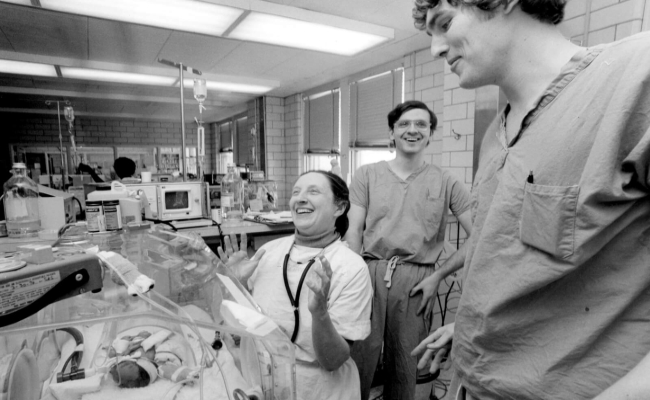
Mildred T. Stahlman, who pioneered the treatment of lung disease in premature infants and who was a tireless advocate of children of all ages, has died
Dr. Stahlman, professor of Pediatrics and Pathology, Microbiology and Immunology, is credited with establishing at Vanderbilt University Medical Center (VUMC) the nation’s first newborn intensive care unit to use monitored respiratory therapy in babies born with damaged lungs. Read MoreJul 2, 2024
-

Vanderbilt scientists receive National Science Foundation grant to explore RNA behavior
Manuel Ascano, associate professor of biochemistry and pathology, microbiology and immunology, and Dr. Alissa Weaver, Cornelius Vanderbilt Chair and director of the Vanderbilt Center for Extracellular Vesicle Research, are one of nine U.S. research teams awarded funding from the National Science Foundation to more fully understand the potential biotechnological uses of RNA, ranging from crop disease protection to treatments that combat cancer. Read MoreMar 18, 2024
-

‘Molecular Muse’ exhibit features Artist-in-Residence program’s science-inspired art
The “Molecular Muse” art exhibit on display in Light Hall is a sampling of pieces from the Vanderbilt Institute for Infection, Immunology, and Inflammation Artist-in-Residence (VI4-AiR) program, which brings together scientists and artists to create and promote art as a visual science communication tool. Read MoreJan 16, 2024
-
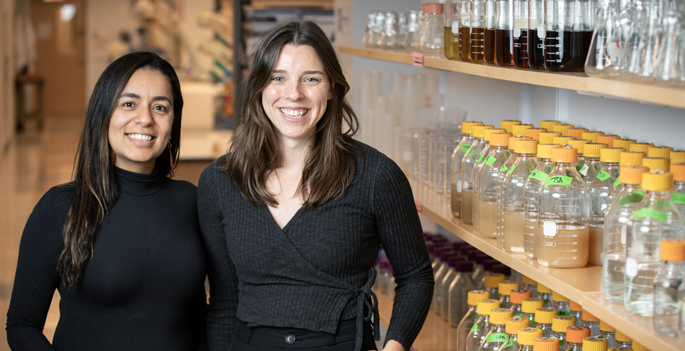
Gut microbiota metabolite protects against obesity: study
Vanderbilt researchers have discovered that beneficial bacteria in the small intestines produce a compound that protects against obesity. Read MoreDec 8, 2023
-

Pasteurization reduces bioactive component of breast milk
Pasteurization of breast milk affects the concentration of osteopontin, a bioactive protein with roles in intestinal, immunological and brain development — suggesting that osteopontin supplementation should be considered when donor milk is provided to preterm infants. Read MoreDec 6, 2023
-

Tumor antigens key to improving cancer immunotherapy: study
Vanderbilt researchers are working to better design immune therapies that attack tumors without also attacking healthy normal tissue in patients. Read MoreNov 17, 2023
-

Crowe, Osheroff honored by AAMC
Vanderbilt's James E. Crowe, Jr, MD, and Neil Osheroff, PhD, are among 12 individuals honored by the Association of American Medical Colleges during its 2023 Awards Recognition Event. Read MoreOct 30, 2023
-
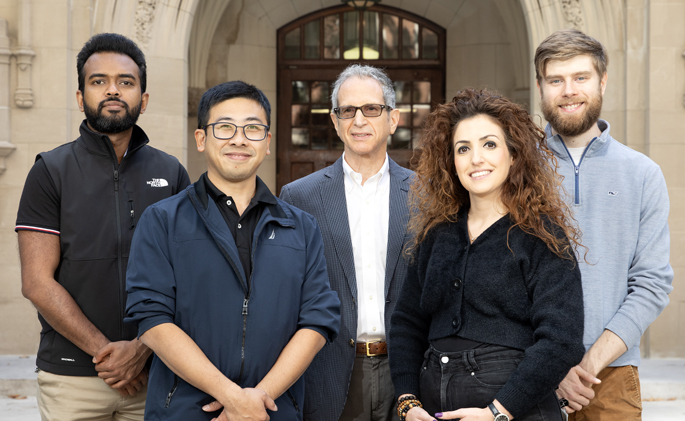
Study discovers role for gut bacteria in host-pathogen competition for nutrients
Vanderbilt research shows that commensal gut microbes impact the host-pathogen competition for iron and have implications for therapeutic strategies aimed at preventing pathogens from acquiring essential nutrients. Read MoreOct 27, 2023
-
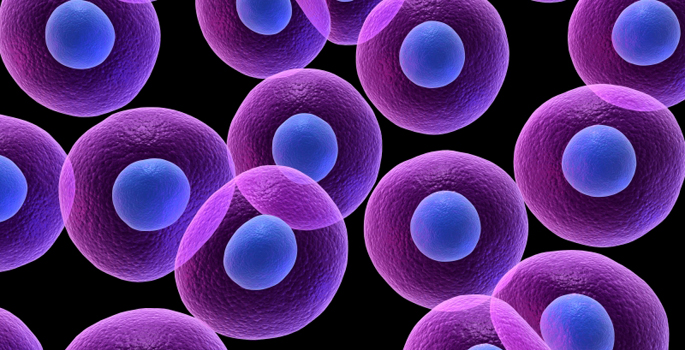
A $3M NSF grant to advance biomanufacturing could help establish an innovative method to deliver medicines to cells
Trans-institutional project connects Vanderbilt experts in drug delivery, stem cell engineering, biomanufacturing and cell biology to advance biomanufacturing of nanoparticles that can deliver precisely targeted drugs to the site of a disease. Read MoreSep 28, 2023
-
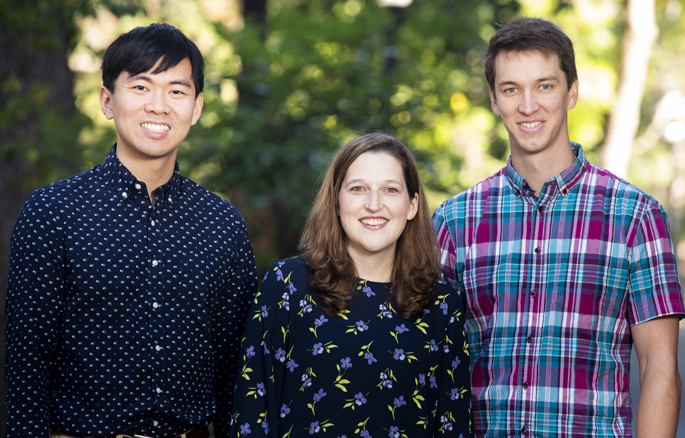
Researchers discover molecular signature for aggressive thyroid cancer
A Vanderbilt study found that a molecular signature that predicts aggressive thyroid cancer could help guide treatment approaches for patients. Read MoreSep 25, 2023
-
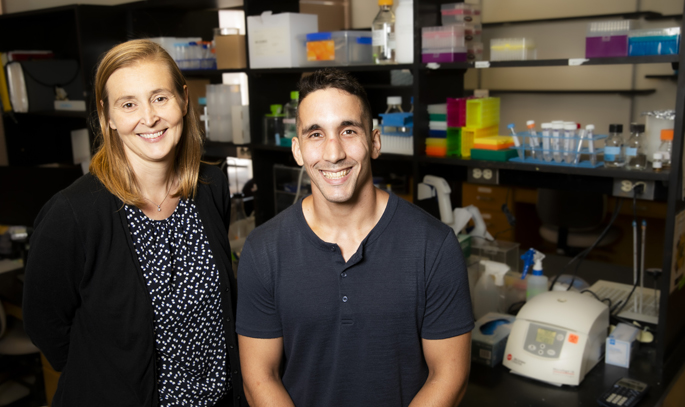
MicroRNAs in immune cells help protect against metabolic defects in obesity: study
Vanderbilt researchers have demonstrated that a cluster of microRNAs — small pieces of RNA that regulate gene expression — work in a type of immune cells called macrophages to help protect against metabolic defects in obesity. Read MoreSep 5, 2023
-

Byndloss selected for Burroughs Wellcome Fund infectious disease award
Vanderbilt's Mariana Byndloss, DVM, PhD, is one of eight Burroughs Wellcome Fund 2023 Investigators in the Pathogenesis of Infectious Disease. Read MoreJun 7, 2023
-
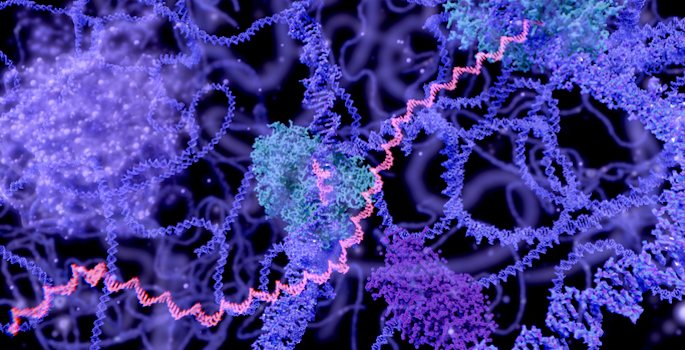
Study details RNA editing in virus-infected cancer cells
Vanderbilt researchers detail the landscape of RNA editing — a form of RNA modification — in primary effusion lymphoma cells during Kaposi’s sarcoma-associated herpesvirus infection and identify an edited viral microRNA that is critical for infection. Read MoreApr 20, 2023
-
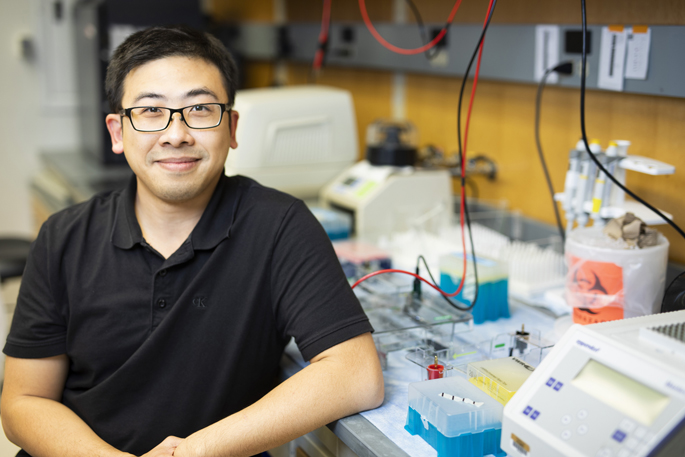
Mathers Foundation award supports study of bacterial physiology
Vanderbilt's Wenhan Zhu, PhD, has received a three-year award from the G. Harold and Leila Y. Mathers Foundation to support his research that aims to answer a fundamental question about bacterial physiology and engineer probiotics to improve gut inflammatory diseases. Read MoreMar 23, 2023
-
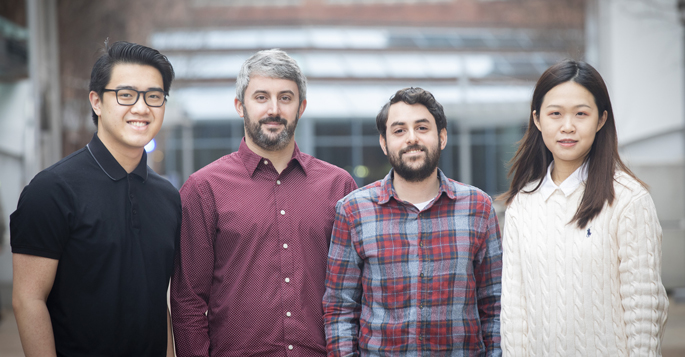
Study reveals new genetic disorder that causes susceptibility to opportunistic infections
An international consortium co-led by Vanderbilt's Rubén Martínez-Barricarte has discovered a new genetic disorder that causes immunodeficiency and profound susceptibility to opportunistic infections including a life-threatening fungal pneumonia. Read MoreJan 20, 2023
-
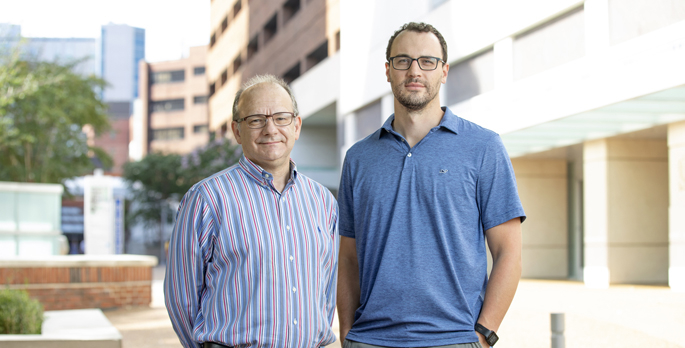
Study identifies key player in T cell “education”
New Vanderbilt research could inform therapeutic strategies for enhancing thymic function when desired — such as during aging, recovery from radiation therapy or chemotherapy, or other conditions that reduce T cell output. Read MoreSep 1, 2022
-

Vanderbilt researchers discover how gut inflammation leads to bone loss
Gastrointestinal inflammation, such as occurs in inflammatory bowel disease, triggers the expansion of a population of “bone-eating” cells, leading to bone loss. Read MoreAug 25, 2022
-

Study describes how E. coli co-opts cells, causes recurrent UTIs
Researchers at Vanderbilt University Medical Center have discovered why the uropathogenic bacterium E. coli, the leading cause of urinary tract infections, is so tenacious; their findings could lead to new ways to prevent recurrent UTIs. Read MoreAug 25, 2022
-

C. difficile may contribute to colorectal cancer: study
A Vanderbilt study found that the bacterium Clostridioides difficile (C. difficile) may be a previously unrecognized contributor to colorectal cancer. Read MoreJul 28, 2022
-

Three Vanderbilt biomedical researchers named 2022 Pew Scholars
Mariana Byndloss, assistant professor of pathology, microbiology and immunology, and William Wan, assistant professor of biochemistry, have been named 2022 Pew Scholars in the Biomedical Sciences. The Pew Charitable Trusts and the Alexander and Margaret Stewart Trust have selected Alexander Bick, assistant professor of genetic medicine, to join the 2022 class of Pew-Stewart Scholars for Cancer Research. Read MoreJun 14, 2022